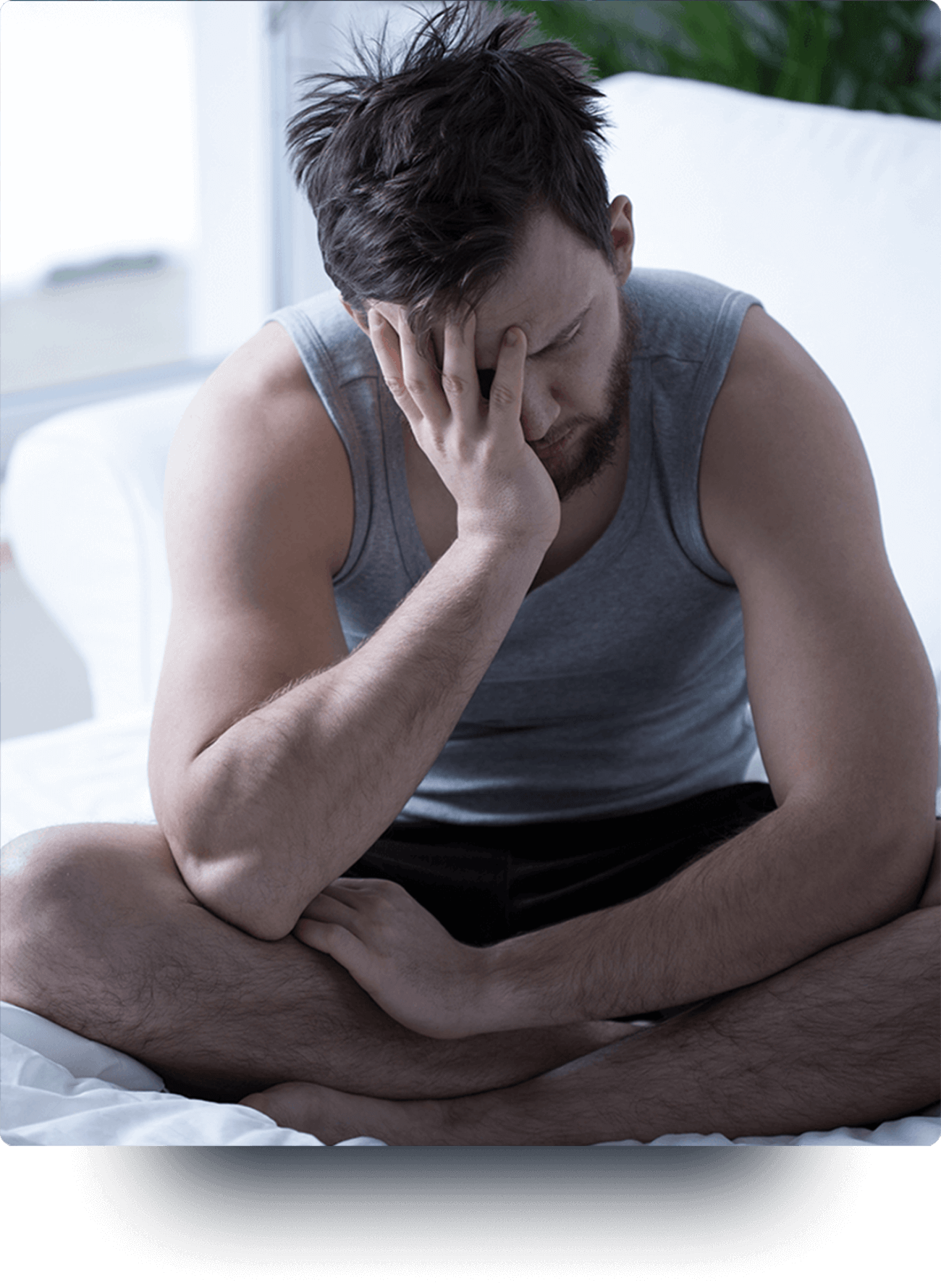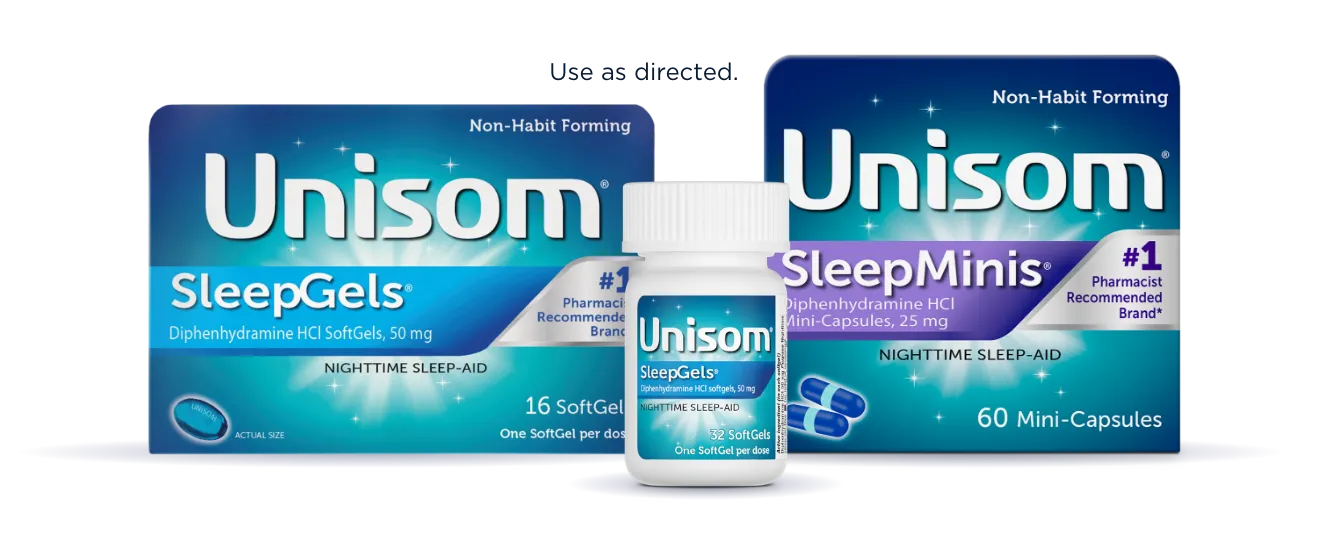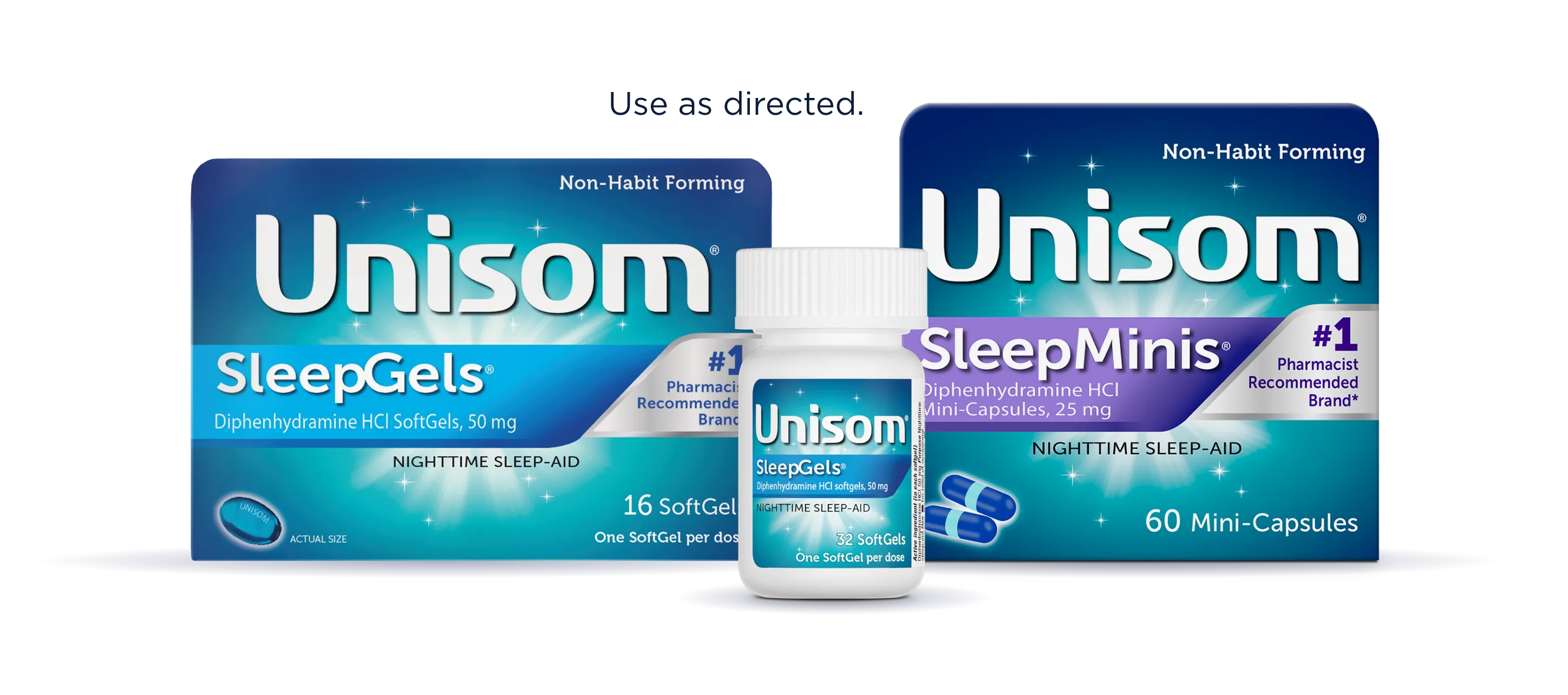There are a few reasons you may wake up feeling groggy, or experience what scientists call “sleep inertia.” It’s a feeling of drowsiness, lack of concentration, or trouble focusing first thing after waking.
Sleep really does build inertia
Sleep goes in four stages and all four make up a sleep cycle. Stage 1 is the earliest, lightest stage of sleep. Stage 4 is the deepest, called REM (rapid eye movement) sleep.2
Each stage has its own unique role in brain and body restoration. Sleep deprivation studies have shown that depriving subjects of specific sleep stages has a negative effect on body and brain functions.3

Sleep inertia happens when you wake suddenly from late-stage sleep. Your system is still in its sleep state while you’re attempting conscious activity, so you may find yourself feeling confused or unfocused.
When awoken from a deep sleep, it typically takes a person up to 30 minutes to lose that groggy feeling and reach their top mental performance.1
It’s usually benign, but be aware
Occasional grogginess on waking is normal. But if you have prolonged periods of difficulty sleeping or waking up, you may want to try and address the issue. Consider talking to your physician or healthcare provider if you exhibit one or more of the following conditions:3
- Waking up groggy after eight or more hours of sleep
- Persistent snoring or disrupted breathing
- Excessive sleepiness during the day
- Trouble falling asleep or staying asleep for a month or more
- Struggles with depression, chronic pain, or illness
So, what’s a non-morning person to do?
First and foremost, get good sleep. For lots more information on how to accomplish this goal, see What is good sleep?, Adapting to change, Create a nightly sleep routine, Better days make for better nights, or see the list below.

Here are a few basics that can help you get a good night’s sleep:4
- Establish evening and morning routines, including sleep and wake times
- Make bedtime relaxing
- Keep your bedroom cool, about 65°F
- Keep your bedroom quiet and dark
- Use the best quality mattress and bedding possible
- Don’t eat two to three hours before bedtime
- Exercise regularly
- Don’t drink caffeinated drinks after noon
- Limit alcohol and nicotine, especially before bed
Rest assured
If you occasionally have trouble falling asleep or staying asleep, it’s good to know that there’s a variety of effective sleep remedies available over the counter.
Choosing the right sleep-aid starts with doing a little research and talking to your doctor.
Unisom® is the #1 doctor-recommended OTC sleep-aid brand, with a range of options to help you fall asleep and wake up feeling refreshed.
Unisom® SleepGels® contain the histamine blocker diphenhydramine HCl. Blocking histamine production can help you fall asleep faster and stay asleep.
Unisom® SleepTabs® contain doxylamine succinate, which is a clinical-strength histamine blocker that works in a similar fashion to diphenhydramine. Unisom® SleepTabs® can help you fall asleep 33% faster and get a full night's sleep.
Find the Unisom® product that’s right for you.
Professional References
1. American Sleep Association, Medical Review. Stages of Sleep: The Sleep Cycle. American Sleep Association (sleepassociation.org).
2. Sleep Foundation, Editors. Stages of Sleep. Sleep Foundation (sleepfoundation.org). October 11, 2021.
3. Joan Lunden. Best Sleep Practices and Why They Matter. American Sleep Association (sleepassociation.org).
4. National Sleep Foundation, Editors. 10 Tips for a Better Night’s Sleep. National Sleep Foundation (thensf.org). May 5, 2020.
Related articles
†This statement has not been evaluated by the Food and Drug Administration. This product is not intended to diagnose, treat, cure or prevent any disease.





